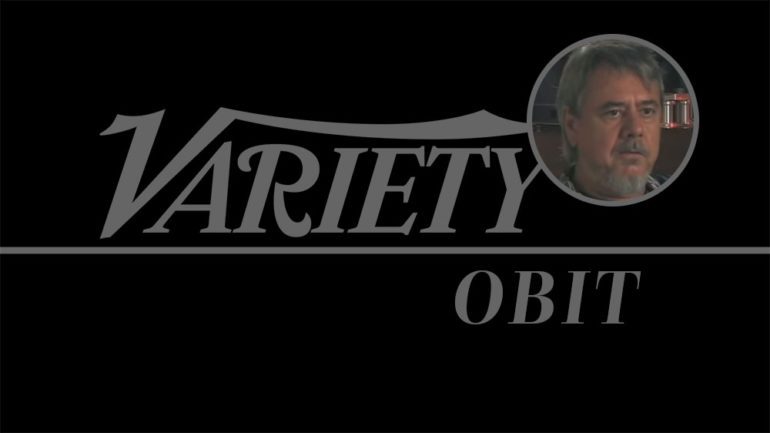Joe Osborn, Wrecking Crew Bassist, Dies at 81
By David Lieberman
LOS ANGELES (Variety.com) – Bassist Joe Osborn died of pancreatic cancer on Dec. 14 at 81.
Osborn was no ordinary studio musician. From the early 1960s to the mid-1970s, Osborn was ubiquitous, playing on tunes as silly as The Monkees theme and as sublime as Simon & Garfunkel’s “Bridge Over Troubled Water.”
You can see Osborn backing Ricky Nelson on the early 1960s TV series “The Adventures of Ozzie and Harriet.” He later became a key member of the elite Los Angeles performers that have come to be known as the Wrecking Crew. He appears prominently in documentaries about the period including “The Wrecking Crew!” (2015) and “Glen Campbell: I’ll Be Me” (2014).
Originally a guitarist, Osborn played the electric bass with a pick which enabled his parts to cut through on recordings — even when played on tiny transistor radios.
But producers featured him because his floating slides, hooks, and counterpoints added the distinctive energy and bounce that distinguished L.A.’s hits. He influenced that fruitful period as much as his bass-playing contemporaries including James Jamerson at Motown, Duck Dunn at Stax, and John Entwistle with The Who.
“Joe’s sound is as distinct and unique as Erroll Garner’s, Wes Montgomery’s, or even Ella Fitzgerald’s,” drummer Hal Blaine – who frequently teamed with Osborn – told Downbeat magazine in 1972.
Studio musicians’ influence is often benchmarked by the number of hits on which they appeared. The Shreveport, La. native’s run included 16 No. 1 songs, starting with Nelson’s “Travelin’ Man,” a song written for – and rejected by — Sam Cooke that Osborn heard and brought to Nelson’s attention.
After that, Osborn drove chart-toppers from performers including Johnny Rivers (“Poor Side of Town,” “Secret Agent Man”), Barry McGuire (“Eve of Destruction”), Gary Lewis & the Playboys (“This Diamond Ring”), the Mamas & The Papas (“Monday, Monday”), Glen Campbell (“Gentle On My Mind”), the Turtles (“You Baby”), the Association (“Windy”), the Fifth Dimension (“Aquarius/Let the Sunshine In”), the Cowsills (“The Rain, The Park and Other Things”), Richard Harris (“MacArthur Park”), Tommy Roe (“Dizzy”), Seals & Crofts (“Summer Breeze”), Neil Diamond (“Holly Holy”), Helen Reddy (“I Am Woman”), America (“Tin Man”), Barbra Streisand (“Stoney End”), England Dan and John Ford Coley (“Nights Are Forever”), the Partridge Family (“I Think I Love You”), the Grass Roots (“Temptation Eyes”), and Olivia Newton John (“Don’t Stop Belevin’”).
Osborn’s influence was especially evident in his work with The Carpenters. He discovered the brother-and-sister team in 1966 when they showed up at his short-lived Magic Lamp records label to accompany an auditioning trumpet player. He helped them to shape their distinctive harmonies and played on all of their hits.
By 1974, the demands of playing about 20 sessions a week became too much for Osborn. He moved to Nashville where he continued his studio work backing performers including Chet Atkins, Eddie Rabbitt, Merle Haggard, Reba McEntire, Kenny Rogers, Jimmy Buffett, and Neil Young.
Osborn moved back to Louisiana in 1988. He gave Nashville’s Musicians Hall of Fame the legendary Fender Jazz bass he used on countless recordings, and had autographed by musicians he accompanied including Karen Carpenter, Olivia Newton-John, Glen Campbell, Merle Haggard, Neil Young and Paul Simon.

